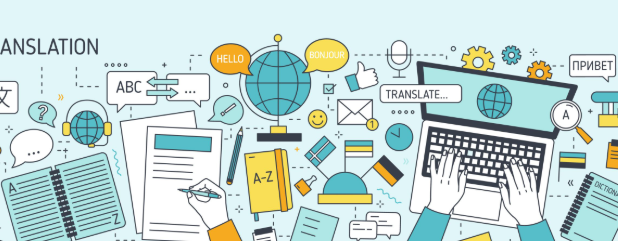Selecting a good translation agency is a process that requires a detailed analysis of several key factors. In a globalized market, reliable translation services are crucial for business success.
Making the right choice ensures accuracy, consistency, and quality in translated texts, which can make a significant difference in how a brand or company is perceived.
One of the fundamental aspects to consider is the agency’s experience and track record. A translation agency with years of experience in the translation sector typically has a team of highly skilled translators with specialized knowledge in various fields. Reviewing the agency’s history, clients, and projects reveals its professionalism and ability to handle various translations.
Another key factor is specialization in specific areas. Not all translations are the same; a legal document requires a different approach than a medical, financial, or technical text. A good agency should have specialized translators to ensure accurate terminology and sector knowledge in each translation. This prevents errors and misunderstandings that could affect a company’s credibility.
The agency’s certification and accreditation also play an important role. Many agencies hold internationally recognized certifications, such as the ISO 17100 standard, which guarantees that translation processes meet high-quality standards. Verifying whether an agency has such accreditations can indicate its commitment to excellence and professionalism in its services.
The quality of the translation team is another essential element to evaluate. A reliable translation agency should work with native speakers of the target language who have a high level of proficiency in the source language. Translators should also have industry experience to better understand the content’s context and nuances.
The use of technological tools is an aspect that should not be overlooked. Modern translation agencies utilize various technologies, including computer-assisted translation (CAT) software, translation memories, and terminology databases. These tools improve consistency and efficiency in projects. They not only help reduce delivery times but also ensure uniformity in the terms used, which is crucial for technical and legal documents.
The quality control process is another important criterion when selecting a translation agency. A reliable company should have a rigorous review and proofreading process that involves experienced editors and reviewers. This ensures that potential errors are detected and corrected before delivering the final document to the client. Asking an agency about its quality control methods can provide valuable insight into its commitment to accuracy and excellence.
The agency’s flexibility and responsiveness are also factors to consider. Often, businesses require urgent translations or have tight deadlines. An efficient agency must be able to adapt to these needs without compromising work quality. Evaluating the agency’s ability to handle large-scale projects and meet deadlines is crucial for ensuring a reliable service.
Service cost is another factor to evaluate, although it should not be the sole selection criterion. While having an appropriate budget is important, choosing an agency solely based on the lowest price may compromise translation quality. It is advisable to request quotes and compare prices with the services offered to ensure a balance between quality and cost.
Customer service and post-translation support should also be taken into account. A professional translation agency must offer clear and effective communication with its clients, respond promptly to inquiries, and be available to make adjustments or clarifications after delivering the translation. Good customer service reflects the agency’s commitment to client satisfaction and the quality of the final work.
References and reviews from other clients can be a valuable source of information when selecting a translation agency. Checking testimonials, online reviews, and requesting direct references from the agency can provide a realistic view of the quality of service offered. An agency with good references and positive reviews is more likely to deliver a reliable and high-quality service.
Confidentiality and security in document management are other crucial factors. Many businesses handle sensitive information and confidential documents that must be protected during the translation process. A professional agency must have strict security policies, confidentiality agreements and secure platforms for file sharing. This responds to the need to ensure the protection of client data.
The ability to adapt to client needs is also important. Every company has specific requirements regarding format, style, and terminology. An efficient translation agency should be able to accommodate these needs and offer customized solutions for each project. Additionally, offering working with different file formats or localitation can make a significant difference in the selection process.

Selecting the right translation agency involves evaluating multiple aspects to ensure high-quality service. From experience and specialization to quality control and document security, each factor plays a fundamental role in the decision-making process. A reliable agency helps businesses expand globally and ensures their message is clearly communicated in different languages.




